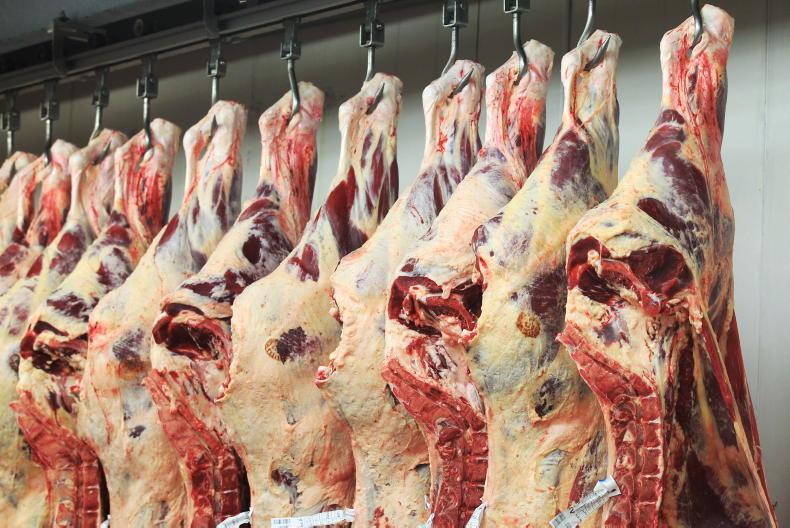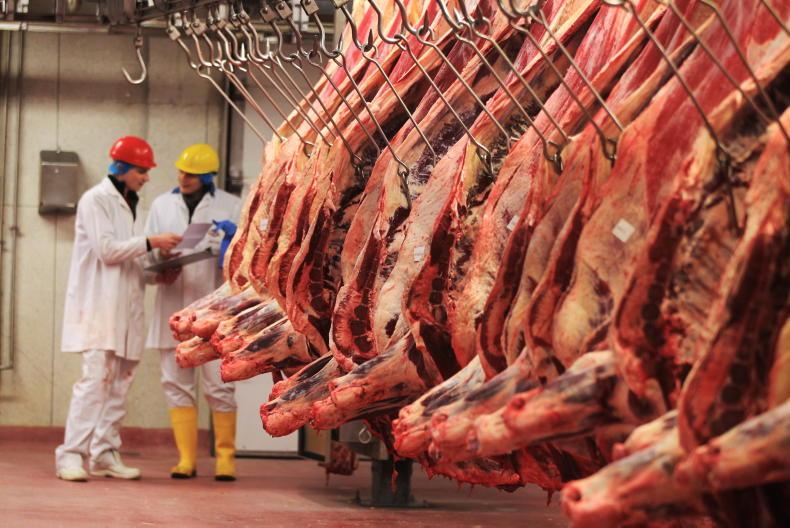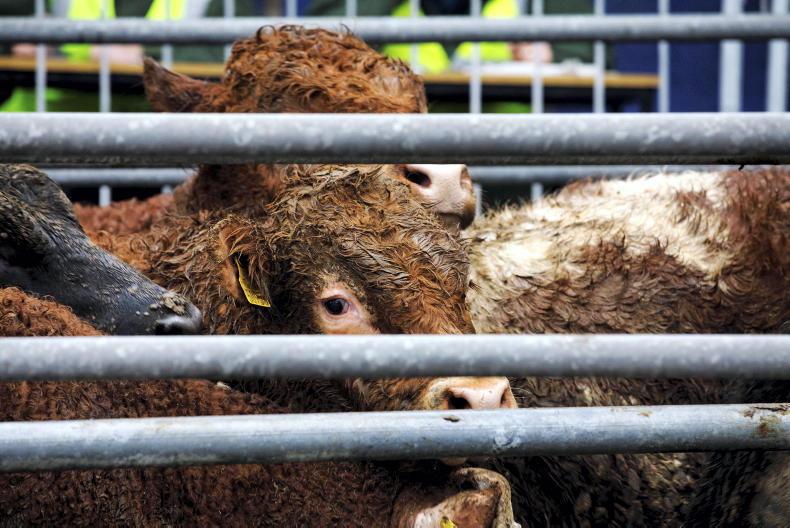The new agri-food regulator is set to have the power to seek and review data on meat factory and supermarket margins and salaries, through measures backed by Minister for Agriculture Charlie McConalogue.
Meat factories and all businesses within the agri-food supply chain would have to provide data on the prices paid to farmers and received from packers or retailers.
The agri-food companies would also have to furnish the agri-food regulator with margin, financial and accountant data, as well as the volumes of agri-food produce they deal with, their policies and procedures, employment statuses and salaries.
Minister McConalogue agreed to the measures, which would be a major step for delivering transparency in the meat processing and wider food sector, during the Oireachtas Agriculture Committee’s review of the agricultural and food supply chain bill 2022.
The bill, outlining the role and remit of the upcoming agri-food regulator, was discussed by TD and senator members of the committee on Wednesday evening.

The agricultural and food supply chain bill 2022 is aimed at delivering greater transparency for the food sector. \ Barry Cronin
During the meeting, the Minister agreed to an amendment to the bill put forward by Sinn Féin TD Matt Carthy through which the regulator would be given the greater powers as detailed above.
Previously, the bill had included language around the regulator only being able to review information from agri-food companies which was already publicly available.
Such a provision was heavily criticised by farm organisations, with Irish Farmers' Association (IFA) president Tim Cullinan calling for the regulator to be given “real teeth”.
Data
While Minister McConalogue initially took issue with the opening line of Deputy Carthy’s amendment, he conceded to back its detail and make the change at the next step of the bill’s review, its ‘report’ stage.
The wording the Minister supported would enable the regulator “to seek from business within the agri-food supply chain any data impacting upon price and margins considered necessary including prices paid and received; margin, financial and accountant data; throughput of agricultural produce; data in relation to policy and procedure; employment status [and] salaries”.

Agri-food companies including supermarkets will fall under the upcoming agri-food regulator's remit.
He also supported the provision that this data could be sought in paper or electronic form.
Feedback
The Minister later agreed to another amendment from Deputy Carthy which would require the agri-food regulator to inform the Oireachtas of his or her ability to acquire the data referenced above, within 12 months of the office’s establishment.
The regulator would then make recommendations as to how it could be empowered to seize or access the agri-food company data if it is not able to do so.
Deputy Carthy said the regulator’s ability to acquire such data is required for it to be “effective”, particularly new data on the “role of dominant processors and retailers”.
Next steps
Agriculture committee members did not finalise their review of the agricultural and food supply chain bill 2022 on Wednesday, with proceedings adjourned until its next meeting.

Meat factories would be asked to provide data on margins, according to an amendment to the agricultural and food supply chain bill 2022.
Once the bill has progressed from this ‘committee stage’, it will move to ‘report stage’, where amendments arising out of the committee stage are considered.
After this, the bill will go back to the Dáil for ‘final stage’, where final comments will be made by Dáil members. If it passes its Dáil stage, the bill will then progress for consideration and review by the Seanad.
Meanwhile, in anticipation of the bill’s finalisation, steps have been taken to recruit the new agri-food regulator and set up his or her new office.
Read more
Regulator has to be the eyes and ears for farmers
Food ombudsman office to be ‘up and running’ by year end - minister
The new agri-food regulator is set to have the power to seek and review data on meat factory and supermarket margins and salaries, through measures backed by Minister for Agriculture Charlie McConalogue.
Meat factories and all businesses within the agri-food supply chain would have to provide data on the prices paid to farmers and received from packers or retailers.
The agri-food companies would also have to furnish the agri-food regulator with margin, financial and accountant data, as well as the volumes of agri-food produce they deal with, their policies and procedures, employment statuses and salaries.
Minister McConalogue agreed to the measures, which would be a major step for delivering transparency in the meat processing and wider food sector, during the Oireachtas Agriculture Committee’s review of the agricultural and food supply chain bill 2022.
The bill, outlining the role and remit of the upcoming agri-food regulator, was discussed by TD and senator members of the committee on Wednesday evening.

The agricultural and food supply chain bill 2022 is aimed at delivering greater transparency for the food sector. \ Barry Cronin
During the meeting, the Minister agreed to an amendment to the bill put forward by Sinn Féin TD Matt Carthy through which the regulator would be given the greater powers as detailed above.
Previously, the bill had included language around the regulator only being able to review information from agri-food companies which was already publicly available.
Such a provision was heavily criticised by farm organisations, with Irish Farmers' Association (IFA) president Tim Cullinan calling for the regulator to be given “real teeth”.
Data
While Minister McConalogue initially took issue with the opening line of Deputy Carthy’s amendment, he conceded to back its detail and make the change at the next step of the bill’s review, its ‘report’ stage.
The wording the Minister supported would enable the regulator “to seek from business within the agri-food supply chain any data impacting upon price and margins considered necessary including prices paid and received; margin, financial and accountant data; throughput of agricultural produce; data in relation to policy and procedure; employment status [and] salaries”.

Agri-food companies including supermarkets will fall under the upcoming agri-food regulator's remit.
He also supported the provision that this data could be sought in paper or electronic form.
Feedback
The Minister later agreed to another amendment from Deputy Carthy which would require the agri-food regulator to inform the Oireachtas of his or her ability to acquire the data referenced above, within 12 months of the office’s establishment.
The regulator would then make recommendations as to how it could be empowered to seize or access the agri-food company data if it is not able to do so.
Deputy Carthy said the regulator’s ability to acquire such data is required for it to be “effective”, particularly new data on the “role of dominant processors and retailers”.
Next steps
Agriculture committee members did not finalise their review of the agricultural and food supply chain bill 2022 on Wednesday, with proceedings adjourned until its next meeting.

Meat factories would be asked to provide data on margins, according to an amendment to the agricultural and food supply chain bill 2022.
Once the bill has progressed from this ‘committee stage’, it will move to ‘report stage’, where amendments arising out of the committee stage are considered.
After this, the bill will go back to the Dáil for ‘final stage’, where final comments will be made by Dáil members. If it passes its Dáil stage, the bill will then progress for consideration and review by the Seanad.
Meanwhile, in anticipation of the bill’s finalisation, steps have been taken to recruit the new agri-food regulator and set up his or her new office.
Read more
Regulator has to be the eyes and ears for farmers
Food ombudsman office to be ‘up and running’ by year end - minister












SHARING OPTIONS